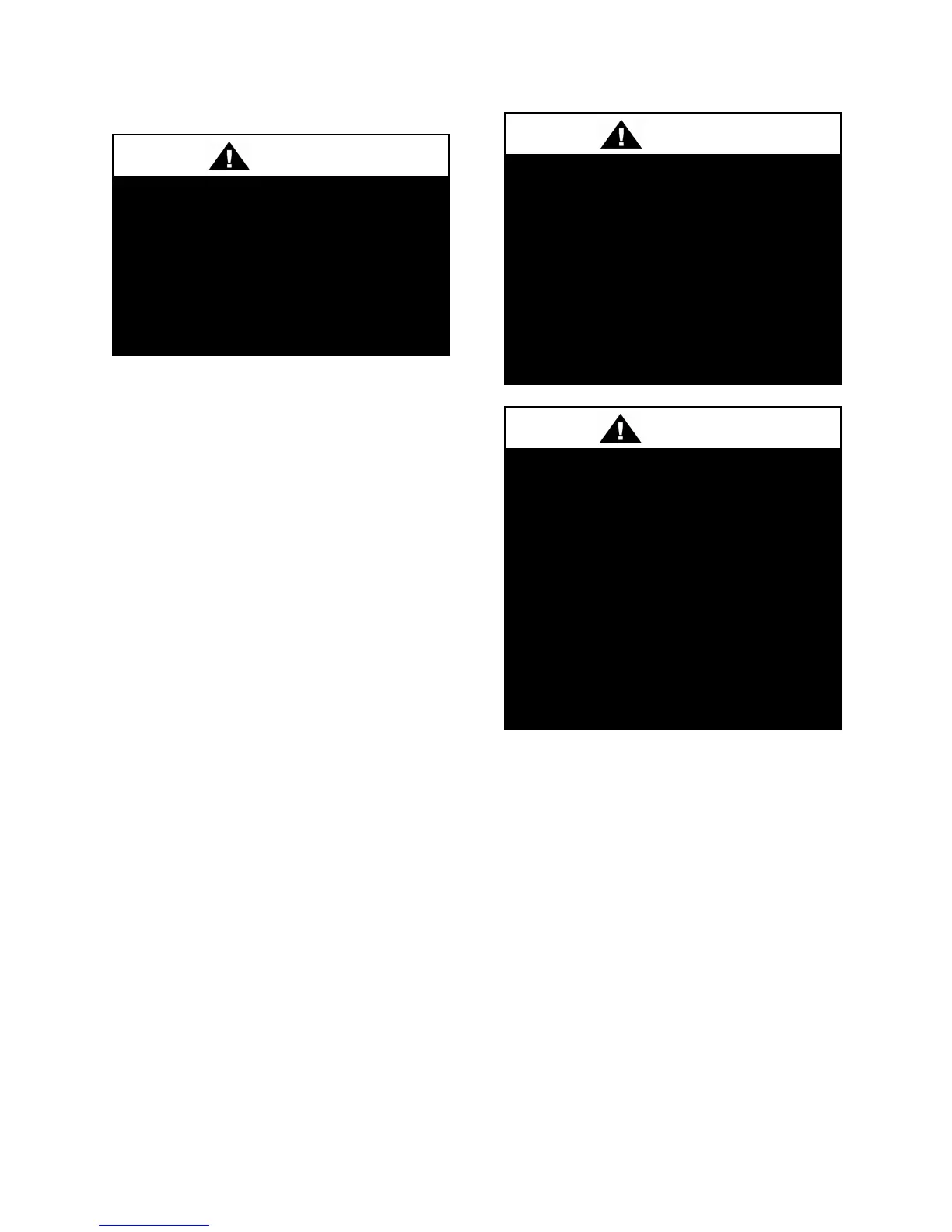55
Do not allow water containing any form of
chlorides to enter this heat exchanger.
Common forms of chlorides include:
1. Sea water mist entering an open cooling
tower system.
2. Contaminated makeup water containing
salt water.
3. Disinfecting the water loop with solutions
containing sodium hypochlorite.
Chlorides will result in a premature failure
of the condenser.
Failure of the condenser as a result of
chemical corrosion is excluded from
coverage under AAON warranties and the
heat exchanger manufacturer warranties.
Failure of the condenser will allow water to
enter the refrigerant circuit and will cause
extensive damage to the refrigerant circuit
components. Any damage to the equipment
as a result of condenser failure from
chemical corrosion due to the fluid in the
condenser is excluded from coverage under
AAON warranties and the heat exchanger
manufacturer warranties.
Freezing Water in the Heat Exchanger
This product contains one or more
refrigerant-to-water heat exchangers. A
refrigerant-to-water heat exchanger contains
refrigerant in one passage and water in
another passage. Water is subject to freezing
at 32°F. When water freezes in a heat
exchanger significant forces are exerted on
the components of the heat exchanger where
the water is confined.
Cleaning the cooling tower or
condenser water loop with harsh
chemicals such as hydrochloric acid
(muriatic acid), chlorine or other
chlorides, can damage the
refrigerant-to-
Care should be ta
ken to avoid
allowing chemicals to enter the
refrigerant-to-
See Appendix A - Heat Exchanger
Corrosion Resistance for more
information.
OPEN LOOP APPLICATIONS
SMO 254 brazed plated refrigerant-
to-
water heat exchangers are
recommended with all open loop
applications. Failure to use a SMO
254 heat exchanger may result in
premature failure of your system and
possible voiding of the warranty.
OPEN LOOP APPLICATIONS
Failure of the condenser as a result
of chemical corrosion is excluded
from coverage under AAON Inc.
warranties and the heat exchanger
manufacturer’s warranties.

